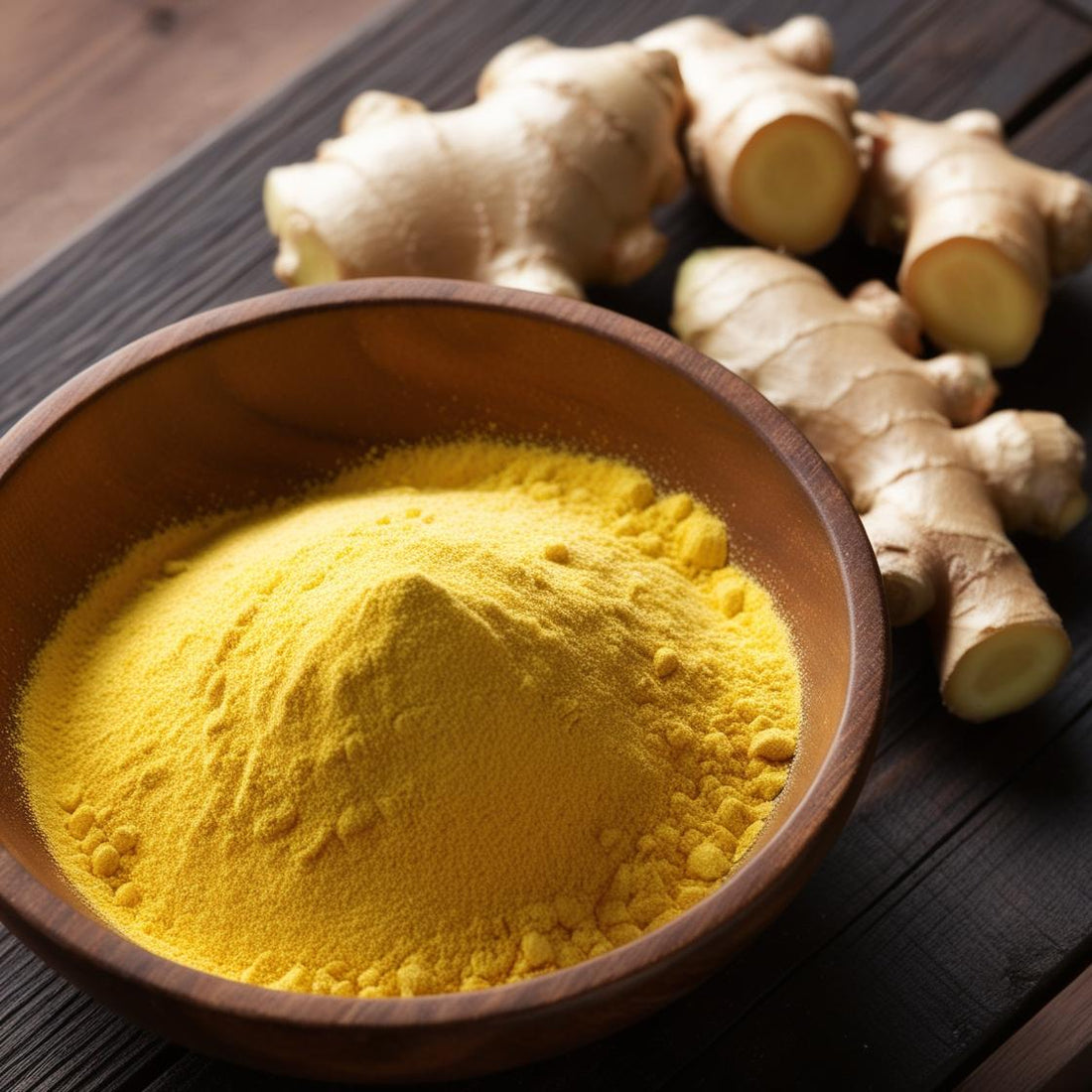Sunthi, also known as dried ginger, is a common spice used in Ayurveda for its medicinal properties. It is derived from the root of the ginger plant (Zingiber officinale) and is commonly used in various forms such as powder, tea, and extracts.
Several studies have investigated the therapeutic potential of Sunthi and have found it to be beneficial in various health conditions. One study found that Sunthi has anti-inflammatory properties and may be useful in the treatment of inflammatory diseases such as arthritis (Sharma et al., 2011). Another study found that Sunthi may help reduce symptoms of motion sickness (Jung et al., 2014).
In addition, Sunthi has also been found to have antiemetic effects and may be useful in the treatment of nausea and vomiting (Lien et al., 2014). It has also been studied for its potential in improving digestion and reducing gastrointestinal discomfort (Hu et al., 2011).
Sunthi has also been found to have potential anticancer effects. One study found that Sunthi extract may inhibit the growth of breast cancer cells (Wang et al., 2016). Another study found that it may have a protective effect against liver cancer (Kumar et al., 2017).
In Ayurveda, Sunthi has been traditionally used for its warming properties and its ability to promote digestion and reduce digestive discomfort (Krishnamurthy, 2011). It is also commonly used as a flavoring agent in various Ayurvedic formulations.
Overall, Sunthi has a wide range of potential therapeutic benefits and has been used for centuries in Ayurveda for its medicinal properties.
References:
Hu, M. L., Rayner, C. K., Wu, K. L., Chuah, S. K., Tai, W. C., & Chou, Y. P. (2011). Effect of ginger on gastric motility and symptoms of functional dyspepsia. World journal of gastroenterology, 17(1), 105-110.
Jung, H. J., Lee, H. S., Kim, Y. S., & Park, H. J. (2014). The effects of ginger on motion sickness and gastric slow-wave dysrhythmias induced by circular vection. Journal of alternative and complementary medicine, 20(7), 527-534.
Krishnamurthy, V. (2011). Ayurvedic Herbs: A Clinical Guide to the Healing Plants of Traditional Indian Medicine. Haworth Press.
Kumar, N., Rungseevijitprapa, W., Narkkhong, N. A., Suttajit, M., Chaiyasut, C., & Suriyo, T. (2017). Zingiber officinale Roscoe prevents acetaminophen-induced acute hepatotoxicity by enhancing hepatic antioxidant status. Food and chemical toxicology, 107, 318-327.
Lien, H. C., Sun, W. M., Chen, Y. H., Kim, H., Hasler, W., Owyang, C., & Shinomura, Y. (2014). Effects of ginger on motion sickness and gastric slow-wave dysrhythmias induced by circular vection. Neurogastroenterology & Motility, 26(2), 379-388.
Sharma, J. N., Srivastava, K. C., & Gan, E. K. (2011). Suppressive effects of eugenol and ginger oil on arthritic rats.

